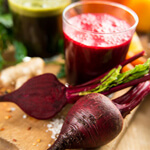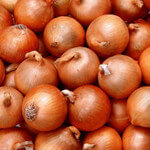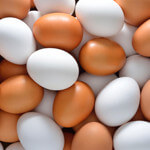 Beetroots have long been treasured by health enthusiasts for their sweet taste, distinctive appearance, and nutritional value. Rich in trace minerals, high in dietary fiber, and bursting with antioxidants, they have been linked to lowered cholesterol, blood sugar control, and even treatment for dementia. According to a recent study by researchers at the Baker Heart and Diabetes Institute in Melbourne, Australia, though, beetroot juice can also lower blood pressure at a dramatic speed.
Beetroots have long been treasured by health enthusiasts for their sweet taste, distinctive appearance, and nutritional value. Rich in trace minerals, high in dietary fiber, and bursting with antioxidants, they have been linked to lowered cholesterol, blood sugar control, and even treatment for dementia. According to a recent study by researchers at the Baker Heart and Diabetes Institute in Melbourne, Australia, though, beetroot juice can also lower blood pressure at a dramatic speed.
15 male and 15 female volunteers were randomly given either 500 milliliters of beetroot juice or, as a placebo, 500 milliliters of apple juice. They had their blood pressure measured hourly during the 24 hours following the juice consumption, and they remained at the clinic for one hour before resuming daily activities. This same procedure was repeated two weeks later, except that neither the beetroot juice nor the apple juice were consumed on first visit. No dietary restrictions were established.
The researchers found that within six hours of consumption, the beetroot juice produced a considerable drop in blood pressure compared to the apple juice placebo. This was especially true of male volunteers when adjusted for baseline variation. According to study co-author, Leah Coles, this result is due to the impressive amounts of nitrates found in beetroot:
“It has been postulated that the inclusion of dietary nitrates in the form of beetroot-derived foods may be useful in the regulation of normal BP due their high inorganic [nitrate] content. The present contribution is the first study […] to examine the effect of beetroot juice on BP in free-living individuals in the absence of dietary restrictions, such as a low nitrate diet.”
The study was published in the December 2012 edition of the Nutrition Journal.
The Benefits of Nitrates
Nitrates have acquired a bad reputation due to their use as curing agents for meat products, but naturally-occurring nitrates found in vegetables such as spinach, lettuce, radishes, and beetroots have been shown to prevent cancer, improve cardiovascular health, and reduce the risk of gastric ulcers.
Moreover, a 2009 study by researchers at the University of Exeter in the United Kingdom found that adult volunteers who drank 500 milliliters of beetroot juice a day could exercise 16 percent longer than those who drank a nitrate-free fruit drink. Lead researcher Stephen Bailey provided some insight into why nitrates are beneficial for us when found in nature:
“Nitrates work in synergy with the other antioxidants that beetroot contains to reduce the oxygen needed by muscles. This enables them to work more efficiently and slows fatigue.”
Since the nitrates used in cured products are isolated from the nutrients that aid absorption and activate their beneficial properties, toxicity arises. The same is true of, for instance, calcium tablets; without additional nutrients such as magnesium to help us absorb the calcium, our bodies experience problems.
However, we don’t need to worry about such imbalances with whole foods like beetroots because their nutritional profiles are self-contained and geared towards superior absorption. For this reason, people seeking to lower their blood pressure should always stick to what nature provides rather than nitrate supplements or preserved products.






